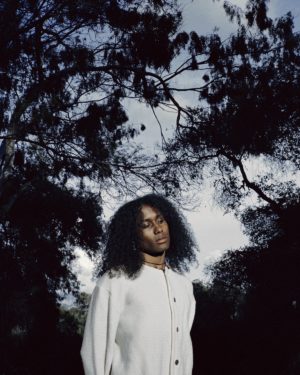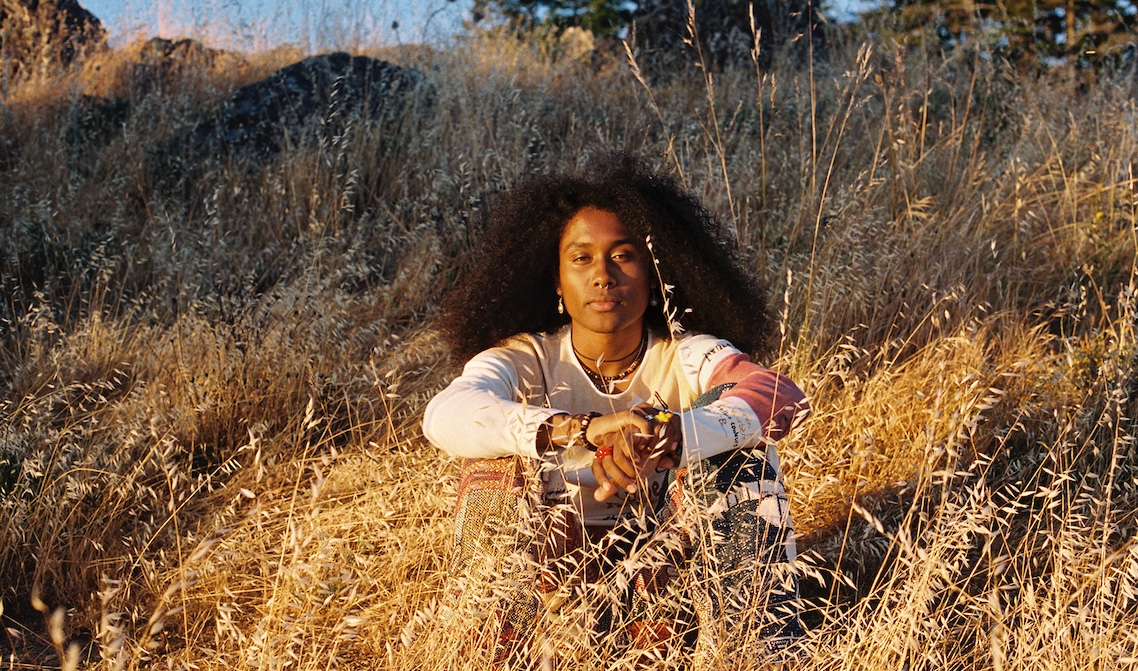It almost seems silly the way we try to siphon something as fluid and free-ranging as music into tiny, secure boxes these days. Assigning strict genres has always been futile, but for the generation now emerging into the mainstream, it seems particularly impossible. You can call the gifted young songwriter Jelani Aryeh “genre-bending” if you want, but you can only bend something so far before it breaks.
His most recent record, the excellent I’ve Got Some Living to Do, is as comprehensive in its influences as it is reluctant to paint within the silly little outlines he’s been assigned. The strutting groove of “Stella Brown” might be your introduction, or it may be the cloud-clearing “Marigold,” or perhaps it’s the swaggering earnestness of “From These Heights.” The fact is, it won’t matter—no matter where you start you’ll find a reason to fall in love with Aryeh’s distinct musical stylings and, perhaps more importantly, you’ll keep falling in love, time and time again.
A few things became clear throughout my recent conversation with Aryeh. While he isn’t cocky, he is confident, both sweetly differential and pointedly self-assured. While he hasn’t let his relatively quick success stamp his wide-eyed charm, he is an artist with a vision, one he doesn’t want to compromise or stamp down. And while he’s never really felt part of a specific scene, he is happy to make one all his own. We talked about all this and more ahead of the release of I’ve Got Some Living to Do this Friday.
A lot of people are likely to be introduced to you as an artist through your song “Stella Brown”—how did it feel to have a song really blow up in that way?
It was super strange because it was right at the beginning of quarantine. I think maybe it reached so many people because some of the bigger artists weren’t really putting out their projects they’d been sitting on, and it gave space to smaller artists. It’s nuts, I didn’t think people would connect with the song the way they did because I really just used this as a way to get my feelings out for myself. I guess people just seemed to be connecting with it in a different way, or maybe in the same way. I don’t know, but it’s a trip.
You kind of referenced the timeline for the record there, but how much of the writing was done for it before quarantine?
I think maybe 40 percent of it was done, and then I started doing Zoom sessions or having FaceTimes with my producer. We did a lot of FaceTime sessions and then when the fall hit and things were kind of starting to open up and producers were getting back to in-person sessions, I got into sessions with Twin Shadow and Michael Shuman from Queens of the Stone Age and worked on some tracks that are on the album. It was pretty much half and half, with half done in 2019 and the other in 2020 and the beginning of this year.
“I didn’t think people would connect with ‘Stella Brown’ the way they did because I really just used this as a way to get my feelings out for myself. I guess people just seemed to be connecting with it in a different way”
I’ve seen your music frequently described as “genre-bending”—is genre something you think about at all when writing?
I think genre just falls where it does. I don’t go out of my way to make a certain genre or attempt to blend anything together. I think that’s just how people in my generation get and hear music. These playlists are kind of always in your face—there are so many things to be listening to, so it comes out naturally. When they say “genre-bending” I think it’s just because we are exposed to so much.
You’ve talked about how you felt Helvetica was a little disjointed, whereas this record feels different. What do you do as a songwriter to create an album that feels cohesive?
I think my first goal with this album was to make a guitar-driven record. I think having that theme already made it a little more cohesive. With Helvetica I didn’t really know what I wanted to make, so whatever my producer did I thought was really cool and I just went with that idea. I feel like Helvetica was just a blending of cool ideas that maybe weren’t finished or refined to a place they could have been. With this one, I feel like we just sat with it more, let it mature a bit, and really knew what we wanted. I think, also, “Stella” having the reception that it did, having that in the back of my mind while making my other songs, was super helpful. It helped me realize I could definitely go in this more guitar-driven direction.
Can you tell me a little bit about the art-collective you founded, Raised by the Internet, and how working with other like-minded creatives helps your own output?
I formed Raised by the Internet via a BROCKHAMPTON, Frank Ocean, and Odd Future subreddit, just asking if anyone wanted to make a collective like them without a genre where we would make beautiful art or music. So the guys that responded to that make up RBTI and they’re from all over the United States. Being able to be in a room with them and play all the things we’re working on and getting other ears for the music is just a really cool thing to be a part of.
I think what makes the group so interesting is how everyone is super different from each other, but doing it at such a high level and really knowing what they want for themselves and what they want for their career. It’s just cool to be in that space and having all these creative friends around that understand what you’re trying to do. It’s kind of bizarre seeing how we branch out, and just seeing this small community forming all over the U.S. and this generational thing of us all knowing each other and having mutuals. It’s like the world is getting smaller in a way. It’s bizarre to see that.
Music videos seem to be an important part of your artistic vision—how do you view the importance of videos and how they affect the listener’s experience?
I’m always super hesitant about making music videos because I’m someone who hears music very visually—I see little music videos in my head when I’m hearing songs. So with “Marigold” I was kind of worried because I think people might have already had this world in their head after listening to it, and it’s kind of an undertaking bringing it out with a crew and director. I just try to do as much as we can with the budget and crew that we have. I owe that to the song and to the listener. I think it serves the song by extending the world of the song and making it more material and physical.
“I don’t go out of my way to make a certain genre or attempt to blend anything together. I think that’s just how people in my generation hear music. There are so many things to be listening to, so it comes out naturally.”
I’ve seen you talk about going into deep rabbit holes with certain genres or time periods in music discovery. How do you think these phases affect your songwriting?
It can be a little much sometimes, but I think it does give the album more variety and I feel like if you hated one song you might hear the next one and possibly like it. I definitely fell into a ’90s rabbit hole at the beginning of quarantine—groups like Sonic Youth, Radiohead, Cocteau Twins. That whole era definitely informed my music, or even just trying to keep the spirit of some of those groups. When I wrote “Marigold” I was super into psych-rock and groups like Love, Electric Prunes, and The Beatles, just how they wrote those songs and what they talked about and trying to bring that in. With “Marigold” it was just a lot of love and light and this serotonin thing which I think a lot of songs from the ’60s and ’70s had. It was just about not forgetting the past, but also looking to the future to try to fuse that into my songs.
You’ve talked about how the song “From These Heights” offers a type of escape. Does music often provide you an escape?
I think that’s what it was when I got into it. I was playing football at the time and I was meant to go to college to play. My dad was my head coach for such a long time, but I was kind of falling out of love with the sport. Music was this escape where I could be who the artist was and see through their eyes. I think that inspired me. [Hearing] Childish Gambino’s Because the Internet and being able to listen to the world that he built with that was super cool. In a way that’s escapism, being able to escape to these other worlds. I just wanted to give people another way to escape into these kinds of sonic movies and worlds to reside in. FL

photo by Daniel Lang









